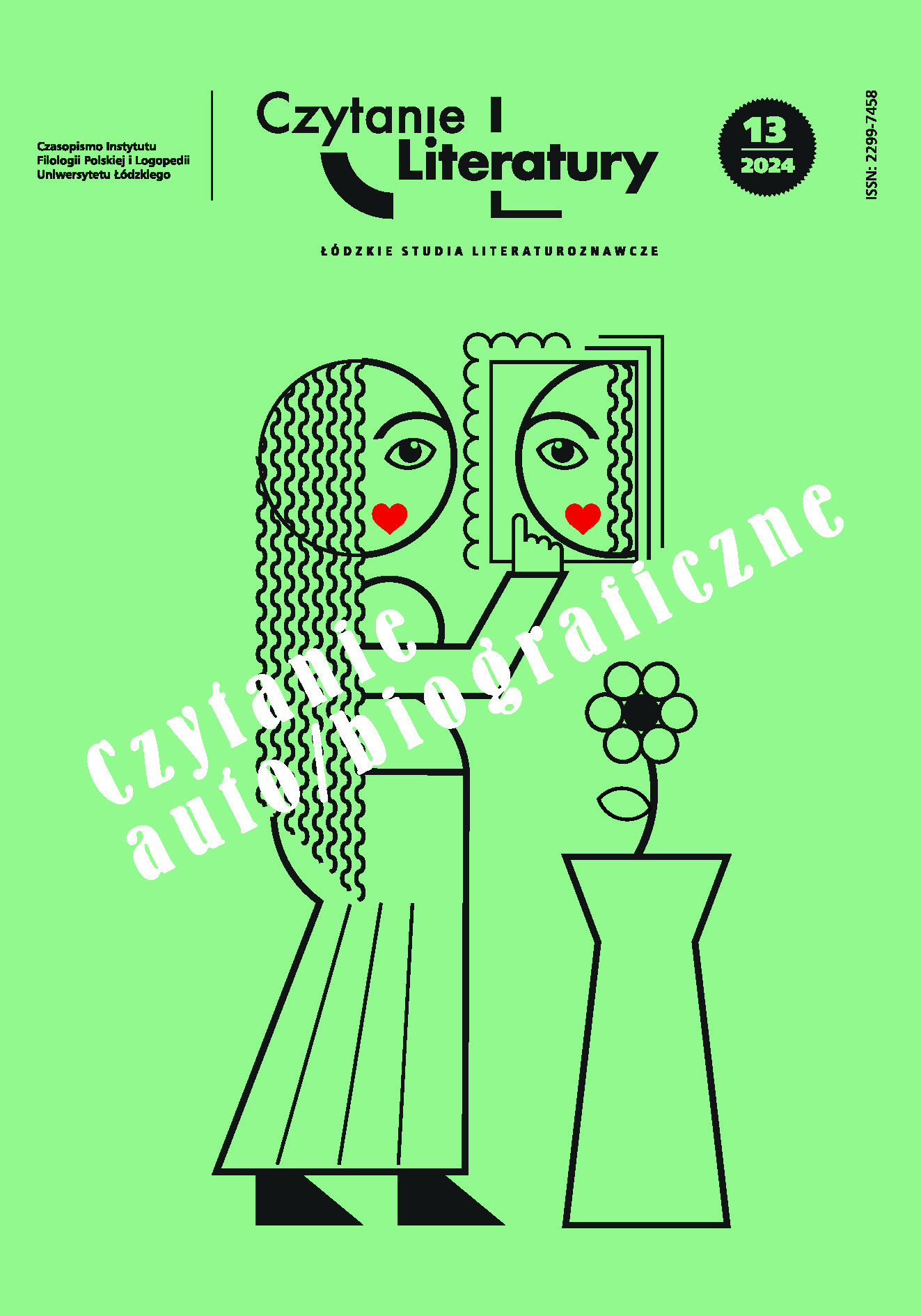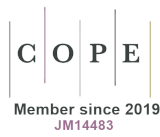Women’s Biography in Modern Ukrainian Women’s War Fiction: the Case of the Novel Because It Hurts by Yevhenia Senik
DOI:
https://doi.org/10.18778/2299-7458.13.08Słowa kluczowe:
women’s war experience, female biographical narrative, modern Ukrainian fiction, Yevhenia SenikAbstrakt
The article deals with the interaction of authentic women’s war experience and ideological requirements while shaping the female biographical narrative in modern Ukrainian fiction as exemplified by the novel Because It Hurts by Yevhenia Senik. The idea of strengthening the national identity with the topics forbidden in Soviet times is presented in the introductory part. The main part of the article shows how the author seeks to respond to both public expectations connected with strengthening the national identity and the need to understand the psychological crises caused by the war. The novel unveils women’s war experience, shaping the social frames of memories about it and influencing the public perception of current women soldiers. However, rather than follow the ideological tradition, Senik focuses on women’s agency and self-awareness.
Pobrania
Bibliografia
Aleksievych, Svitlana. U wijny ne zhinoche oblychcha. Kharkiv: Folio, 2020.
Google Scholar
Brunstedt, Jonathan. “Building a Pan-Soviet Past: The Soviet War Cult and the Turn Away from Ethnic Particularism.” The Soviet and Post-Soviet Review, no. 38(2), (2011): 149–171. https://doi.org/10.1163/187633211X589114
Google Scholar
DOI: https://doi.org/10.1163/187633211X589114
Burds, Jeffry. Sovetskaia agentura: Ocherki istorii SSSR v poslevoennye gody (1944–1948). Moscow–New York: Sovremennaya istoria, 2006.
Google Scholar
Chevigny, Bell Gale. “Daughters Writing: Toward a Theory of Women’s Biography.” Feminist Studies no. 1(9) (1983): 79–102. https://doi.org/10.2307/3177684
Google Scholar
DOI: https://doi.org/10.2307/3177684
Chodorow, Nancy. The Reproduction of Mothering: Psychoanalysis and the Sociology of Gender, Berkeley: University of California Press, 1978. https://doi.org/10.1525/9780520924086
Google Scholar
DOI: https://doi.org/10.1525/9780520924086
Cooke, Miriam. Women and the War Story. Berkeley: University of California Press, 1996. https://doi.org/10.1525/9780520918092
Google Scholar
DOI: https://doi.org/10.1525/9780520918092
Fedor Julie, Lewis Simon, Zhurzhenko Tatiana. “Introduction: War and Memory in Russia, Ukraine, and Belarus.” In War and Memory in Russia, Ukraine and Belarus, eds. Julie Fedor et al. London: Palgrave Macmillan, 2017. https://doi.org/10.1007/978-3-319-66523-8
Google Scholar
DOI: https://doi.org/10.1007/978-3-319-66523-8
Flax, Jane. “The Conflict between Nuturance and Autonomy in Mother-Daughter Relationships and within Feminism.” Feminist Studies, no. 2(4) (1978): 171–189. https://doi.org/10.2307/3177468
Google Scholar
DOI: https://doi.org/10.2307/3177468
Grzebalska, Weronika. “Between gender blindness and nationalist herstory.” Baltic Worlds, no. 10(4) (2017): 71–82.
Google Scholar
Henke, Suzette A. Shattered Subjects: Trauma and Testimony in Women’s Life-Writing. London: Macmillan, 1998.
Google Scholar
Hynes, Samuel. A War Imagined: The First World War and English Culture. London: Maxwell Macmillan International, 1990.
Google Scholar
Ishchuk, Oleksandr and Ivanchenko, Volodymyr. Zhyttievyi shliakh Halyny Holoiad — «Marty Hai». Toronto–Lviv: Litopys UPA, 2010.
Google Scholar
Ivanchenko, Volodymyr. Kvitka v chervonomu pekli: zhyttievyi shliakh Liudmyly Foi. Toronto–Lviv: Litopys UPA, 2009.
Google Scholar
Kis, Oksana. “Mizh osobystym i politychnym: genderni osoblyvosti dosvidu zhinok-uchasnyts natsionalno-vyzvolnykh zmahan na zakhidnoukrainskykh zemliakh u 1940–1950-kh rokakh.” Narodoznavchi zoshyty, no. 4(112) (2013): 591–599.
Google Scholar
Krylova, Anna. Soviet women in combat: a history of violence on the Eastern Front. Cambridge, New York: Cambridge University Press, 2010. https://doi.org/10.1017/CBO9780511762383
Google Scholar
DOI: https://doi.org/10.1017/CBO9780511762383
Mälksoo, Maria. “‘Memory must be defended’: Beyond the politics of mnemonical security.” Security Dialogue, no. 46(3), (2015): 221–237. https://doi.org/10.1177/0967010614552549
Google Scholar
DOI: https://doi.org/10.1177/0967010614552549
Melnyk, Oleksandr. World War II as an Identity Project: Historicism, Legitimacy Contests, and the (Re-)Construction of Political Communities in Ukraine, 1939–1946. Stuttgart–Hannover: ibidem Press, 2023.
Google Scholar
Novak, Julia; Ní Dhúill Caitríona. “Imagining Gender in Biographical Fiction: Introduction.” In Imagining Gender in Biographical Fiction. London: Palgrave Macmillan, 2022, 1–46. https://doi.org/10.1007/978-3-031-09019-6_1
Google Scholar
DOI: https://doi.org/10.1007/978-3-031-09019-6_1
Onyshko, Lesia. «Nam sontse vsmikhalos kriz rzhavii graty...»: Kateryna Zarytska v ukrainskomu natsionalno-vyzvolnomu rusi. Toronto–Lviv: Litopys UPA, 2007.
Google Scholar
Panchenko, Oleksandr. Zviazkova henerala. Halyna Dydyk: «…Na zhal, i ya zhyva». Hadiach: Hadiach, 2007.
Google Scholar
Petrenko, Olena. “Instrumentalizatsiia strakhu. Vykorystannia radianskymy ta polskymy orhanamy bezpeky zhinok-ahentiv u borotbi proty ukrainskoho natsionalistychnoho pidpillia.” Ukraina Moderna, 2011, no. 18: Pohranychchia. Okrainy. Peryferii, 127–151.
Google Scholar
Petrenko, Olena. “Literaturni obrAzy «banderivok» u konteksti ideolohichnykh voien.” In Zhinky Tsentralnoi ta Skhidnoi Yevropy u Druhii svitovii viini: henderna spetsyfika dosvidu v chasy ekstremalnoho nasylstva”, eds. Helinda Hrinchenko, Kateryna Kobchenko, Oksana Kis. Kyiv: Art Knyha, 2015, 143–144.
Google Scholar
Senik, Yevhenia. Bo bolyt. Brustury: Discursus, 2023.
Google Scholar
Smith, Anthony. “Memory and Modernity: Reflections on Ernest Gellner’s Theory of Nationalism.” Nations and Nationalism, no. 2(3) (1996), 371–388. https://doi.org/10.1111/j.1469-8219.1996.tb00004.x
Google Scholar
DOI: https://doi.org/10.1111/j.1469-8219.1996.tb00004.x
Turpin, Jenifer. “Many Faces: Women Confronting War.” In The Women and War Reader, eds Lois Ann Lorentzen and Jenifer Turpin. New York: New York University Press, 1998, 3–18.
Google Scholar
Yuval-Davis, Nira. “Nationalist projects and gender relations.” Narodna umjetnost, no. 1(40) (2003): 9–36.
Google Scholar
Pobrania
Opublikowane
Jak cytować
Numer
Dział
Licencja

Utwór dostępny jest na licencji Creative Commons Uznanie autorstwa – Użycie niekomercyjne – Bez utworów zależnych 4.0 Międzynarodowe.










